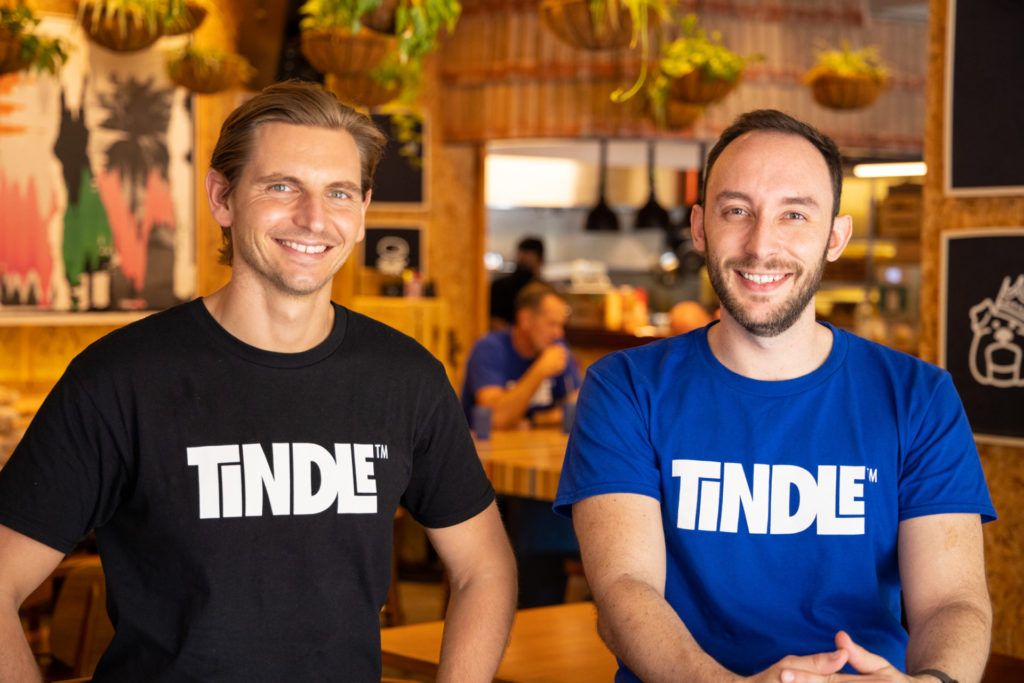Even before Next Gen Foods secured an additional $20 million in funding this week, it had already raised the largest seed round on record for a plant-based protein startup.
The extension announced yesterday comes on top of the $10 million the Singapore-based startup banked back in February from high-profile investors including sovereign fund Temasek and EDB New Ventures, an investment arm of the city-state’s Economic Development Board.
Temasek returned to participate in this week’s latest tranche alongside existing investor, Singapore’s K3 Ventures.
Next Gen’s other seed-round backers include US-based GGV Capital, China’s Bits x Bites, and Singaporean food and beverage brand Yeo Hiap Seng. NX-Food — a venture builder affiliated with German retailer Metro AG — also took part, as did Swiss agrifood investor Blue Horizon and Singapore-based VC firm FEBE Ventures.
A number of celebrities — including English footballer Dele Alli and Chris Yeh, who co-authored startup tome ‘Blitzscaling: The Lightning-Fast Path to Building Massively Valuable Companies‘ with LinkedIn co-founder Reid Hoffman — joined the round too.

For Next Gen’s co-founder and chief operating officer Andre Menezes, it was his startup’s bootstrapped ethic and unorthodox approach to product strategy — shaped, inevitably, by the Covid-19 pandemic — that helped convince investors to write such large checks for a seed-stage venture.
“We started last year, right in the middle of Covid – and not from ‘ground zero,’ as startups typically do, because Timo [Recker, co-founder and CEO] and I both have a background in the food production industry. So we started off right where we ended,” he told AFN.
“Because of that, Covid has not held us back. It’s even been a bit of a blessing, since it forced us to design a very innovate business model: Our goal was to bring the company to a minimum stage of development [before we’d] be more comfortable going out and bringing in strategic investors.”
‘We’re very much a tech business’
Menezes joined Next Gen immediately after leaving his role as general manager at Singaporean food solutions company Country Foods, where he worked on the processing and distribution of Impossible Foods products in the region.
Recker founded German plant-based protein startup LikeMeat in 2013, serving as its CEO until it was acquired by the Livekindly Collective early in 2020. Prior to that, he’d worked in his family’s meat processing business.
Much of Next Gen’s $2.2 million pre-seed funding came out of Recker’s own pocket, according to Menezes.
“The very fact we didn’t take [money from] external investors with different ambitions or views to us, made it very clear to them that we wanted to build a solid business,” he said.
“When we started raising for our [full] seed round in October last year, we were not desperately in need of cash. What we wanted was some great names on board for us that could be great partners in in the long term […] We didn’t want outside investors that wanted us to rush into building a factory, so that early independence was vital.”
House of plant-based brands Livekindly Collective nets $335 million funding – read more here
The reason that Menezes and Recker believed they could take such a route was their background in running brick-and-mortar food businesses, he added.
“We know how to run it, who to engage, and we understand what we can do internally and where we can outsource.”
This industry insight allowed Menezes and Recker to convince established agrifood companies to work with them at pre-revenue stage, allowing them to develop a business model that could operate within the immediate movement limitations imposed by Covid-19 – as well as future-proofing it for longer term supply chain resilience issues.
For the founders, it became second nature to sign contracts remotely or finalize manufacturing arrangements in Europe without setting foot there – and they got their partners to accept it as second nature, too.
“We’re asset-light and do not touch physical goods other than for R&D, so we’re very much a ‘tech’ business in that sense. There is no physical limitation to what we do,” Menezes said.
“Our expansion is only limited by commercial and marketing bandwidth and investment. This makes a powerful case for us to expand very quickly, exactly like a tech company would do.”
Expanding beyond Asia
Since March, Singaporeans have been able to enjoy Next Gen’s flagship product line — a plant-based chicken meat substitute marketed as Tindle — at select restaurants and food trucks across the city-state.
Designed to mimic the texture and taste of chicken thigh flesh, Tindle’s Thy is made from textured plant protein derived from soy and wheat. It also contains oat, coconut, and a “secret ingredient” created in-house called Lipi, which replicates the flavor, smell, and cooking profile of chicken fat. The Thy is free of GMOs, cholesterol, antibiotics, and hormones.
Now, Next Gen plans to use the fresh seed funds it has raised to expand to the US – currently the world’s biggest market for plant-based products.
The startup will hire 50-plus staff, mainly to be based in the San Francisco Bay Area, to handle its R&D, sales, supply chain, finance, and marketing operations in the country.
Some of the funds will also go towards further expansion in Asia Pacific — including the establishment of a dedicated R&D center in Singapore — as well as the Middle East.
Next Gen will continue with the strategy that has worked well for it so far: the pursuit of rapid growth and aggressive brand building. Menezes is up front about profitability being less important at this stage.
“This market is just starting out. We don’t want to be chasing profit if that means compromising on our ability to grow – our ambition right now is to grow as fast as we can and catch as much mindshare and market share as possible,” he said.

Tindle made its first move overseas last month, launching in restaurants in Hong Kong and Macau, with Kuala Lumpur slated as its next stop.
That said, Next Gen certainly has eyes on ensuring its success and sustainability in the longer term.
“We want to build a solid brand and company for the future,” Menzes said. “We are a platform starting with Tindle, but we don’t have to stop there. Our infrastructure could be used for other brands and categories as well.”
That could potentially include cell-cultured protein farther down the line, should the right opportunities present themselves. Menezes said that Next Gen doesn’t view cultivated meat competing against plant-based substitutes, but complementing them.
“The thing we are fighting against is not different technologies or ingredients; the only competition for us is animal farming. [That’s] the only thing we’ll never touch,” he said.
“At Next Gen we don’t look at one specific ingredient or technology; we look at what gives the best texture, taste, and cost – and at the moment, that happens to be plant-based. But we don’t say yes or no [to cell-cultured protein.] It’s very promising, but still the regulatory barriers are too high – and without scale, you can’t reduce costs, so it’s stuck in a bit of loop.”
Cultivating meat in a bioreactor still involves multiple costly and complicated steps in order to transform its initial homogenous structure into a product with a texture, taste, and appearance more familiar to the consumer, he added.
“Personally, I think that before all those stars align with cell-based, I would expect plant-based to already be ticking all the boxes from a consumer perspective.”





